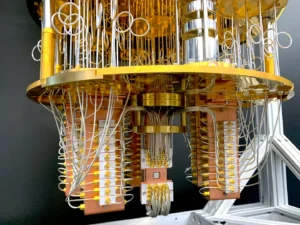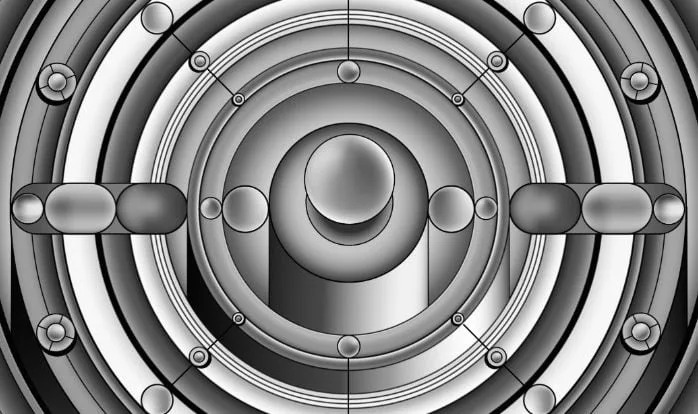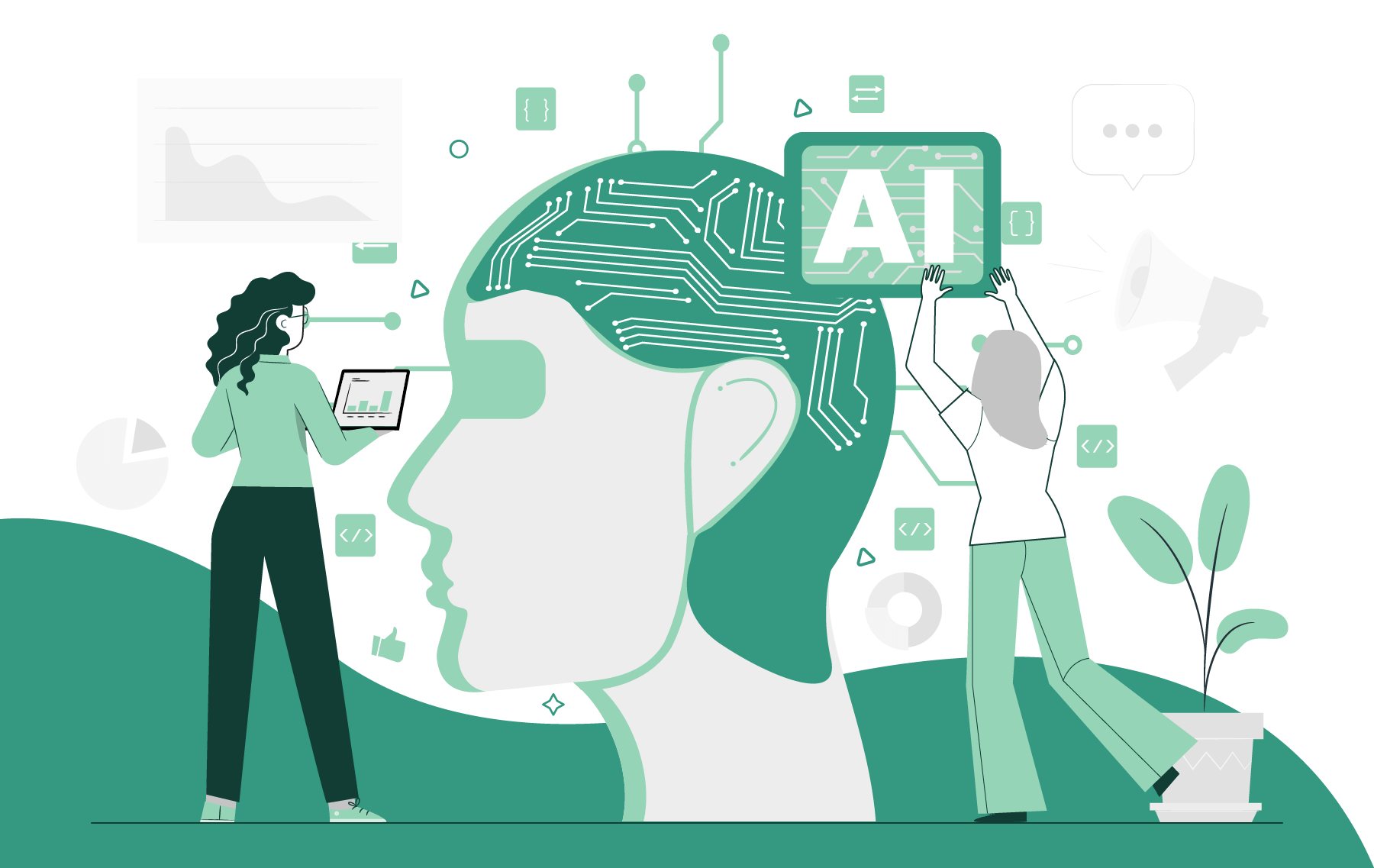What is Quantum Pc ?
What is Quantum Pc ? Demystifying Quantum Computing: Unveiling its Nature and Potential
Over the centuries, the evolution of computing has transformed society in unimaginable ways, from primitive mechanical computing devices to the modern era of classical computers. Yet, we are currently standing on the precipice of a groundbreaking revolution – Quantum Computing. The world has now turned its attention to the field of Quantum Computing, primarily because of the unprecedented computational power it promises.
A Quantum Computer (QC),
to put it simply, is a type of computer that utilizes quantum mechanics – the fundamental theory in physics that describes how all particles behave at the smallest scales – to perform computations. QCs operate vastly different from conventional computers, offering exponentially enhanced computation capabilities than classical computers.
Unlike classical computers that store information in bits (0s or 1s), Quantum Computers use quantum bits, or “qubits.” A qubit, just like a bit, has a default state of either 0 or 1. However, the ‘magic’ of quantum mechanics allows qubits to exist in a superposition, where it can be both 0 and 1, or anywhere in between, simultaneously. This capacity to handle vast combinations of 0s and 1s at once is what gives QCs their unprecedented computational power.
Quantum Pc Entanglement
Moreover, quantum properties like “entanglement” allow a group of qubits to work together, amplifying the computational power further.
Entangled qubits are intrinsically connected, meaning that the state of one qubit will immediately affect the state of another, no matter how far apart they are.
This trait further enhances their computational muscle by providing a dramatically increased probability of finding the correct answer for complex calculations.
Despite the transformative potential Quantum Computing offers, it is equally important to note that QCs are not intended to replace traditional computers.
They are, instead, projected to perform tasks that are currently computationally unfeasible or too time-consuming for classical computers, such as simulating quantum systems for drug discovery or executing complex optimization problems.

Quantum states
However, building practical QCs is a colossal task. Quantum states, which facilitate quantum computation, are extremely delicate, susceptible to the smallest environmental disturbances. Thus, ensuring these states remain stable for computation requires QCs to operate at temperatures close to absolute zero and requires extreme isolation from external interference.
While several tech giants like IBM, Google, and Microsoft are making significant inroads into the field of Quantum Computing,
it is important to note that practical, widely available quantum computers may still be years, if not decades, away.
computational possibilities
Quantum Computing represents the frontier of computational possibilities. Despite its relatively nascent state,
the potential applications it proposes are rife with possibilities in fields as diverse as cryptography, artificial intelligence, and material science.
As such, Quantum Computing promises an era of unprecedented technological innovation, and an in-depth understanding of it will serve as a valuable tool for shaping the future.
Quantum Computing: The Future of Supercomputing is Quantum
As we move deeper into the digital age, technological advancements continue to surprise us, and Quantum Computing is at
the center of these breakthroughs. Despite being inspired by quantum mechanics, a discipline known for its complexity, the concept of Quantum
Computing can be simplified to understand its practical potential and significance in our digital future.
Quantum Computing is a novel field at the intersection of physics, computer science, and information theory. A Quantum Computer, unlike its classical counterpart, harnesses the properties of quantum mechanics to process information and solve complex problems at an unprecedented scale and speed.
The key to the power of Quantum Computing lies in the nature of its fundamental unit of information – qubits.
Conventional computers encode information in binary digits or ‘bits,’ that can be either 0 or 1. However, in a Quantum Computer, these
‘bits’ become ‘quantum bits’ or ‘qubits.’ Thanks to quantum mechanics’ quirkiness, qubits do not have to be merely 0 or 1 – they can be both simultaneously due to a quantum phenomenon called superposition.
Cardinal aspect
Another cardinal aspect of Quantum Computing is ‘quantum entanglement.’ In this quantum phenomenon, qubits become intertwined, such that the state of one instantly impacts the state of the other, regardless of distance. These quantum properties offer Quantum Computers their astounding capabilities, allowing them to simultaneously consider multitudinous solutions to a problem far beyond the reach of even the most powerful supercomputers.
Beyond theory, the practical deployment of Quantum Computers presents numerous challenges due to quantum instability and the extreme
conditions required to maintain quantum states. Qubits are exquisitely sensitive, easily disturbed by changes in their environment, leading to “quantum decoherence”—a loss of quantum properties. Thus, advancing Quantum Computing requires surmounting these obstacles to maintain
stable and coherent qubits.
Quantum Pc Household technology
Moreover, Quantum Computers are not envisioned to become a household technology, replacing conventional computers.
Rather, they are more likely to be powerful tools prevalent in specific industries, performing specialized tasks beyond the
capacity of classic computers.
For instance, they may revolutionize drug discovery by simulating complex molecular structures or reinvent cryptography due to their
potential for incredibly swift factorizing large prime numbers.
While Quantum Computing remains an emerging technology, its potential to resolve complexities that exist beyond classical computer’s scope makes it the subject of much pursuit and promise.
Major tech corporations, including Microsoft, Google, and IBM, are undertaking substantial research aimed at unlocking
Quantum Computing’s immense potential.
Summarily, quantum computers stand as a testament to the thrilling possibilities inherent in marrying theoretical science with practical computing.
While in its infancy, Quantum Computing holds out the promise of transforming our engagement with data and the digital world in a future not too far away.




